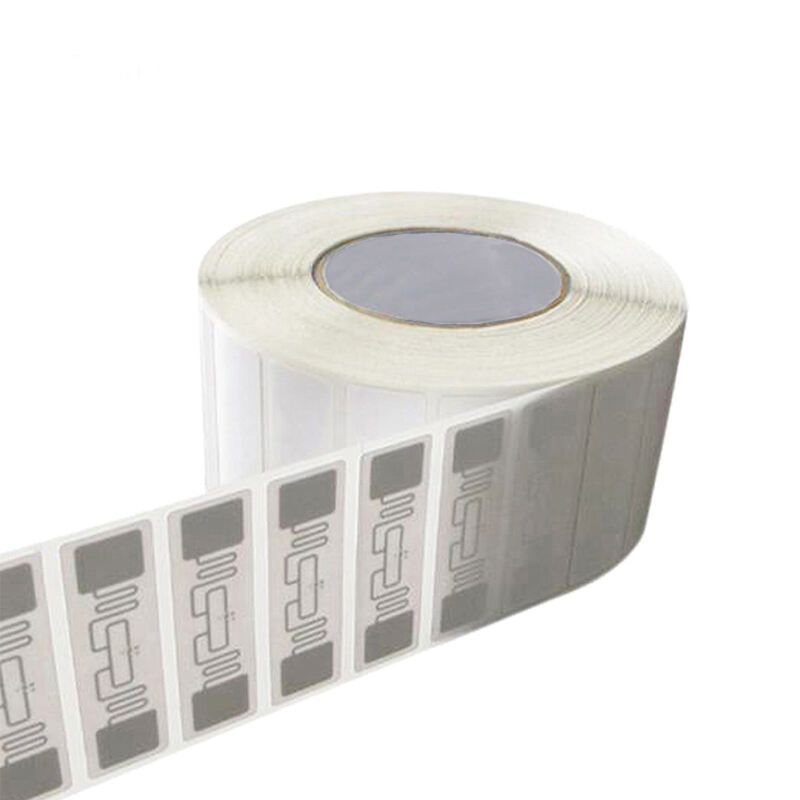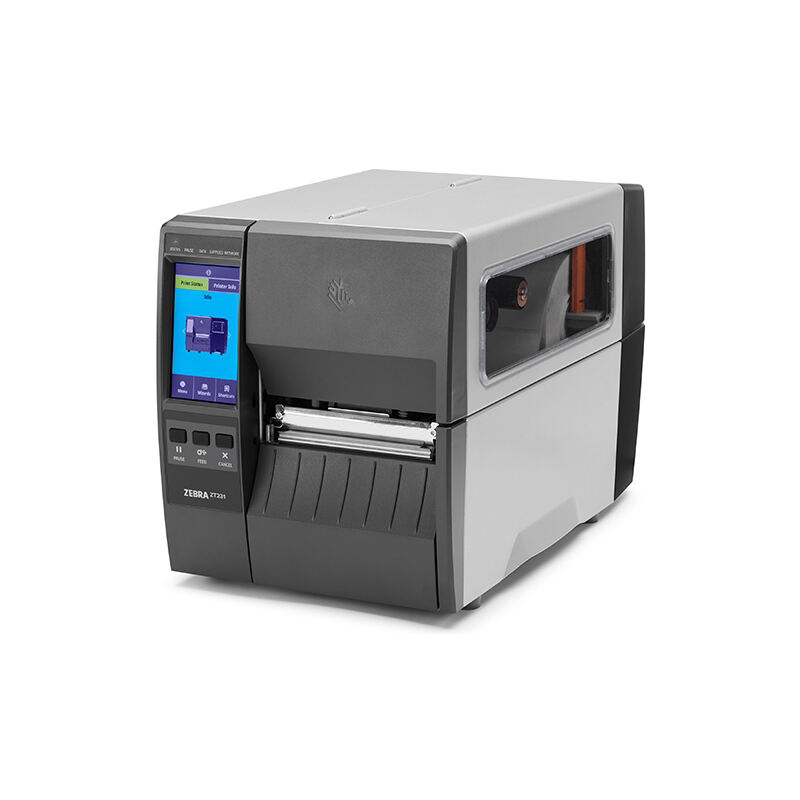RFID, קיצור של זיהוי באמצעות תדר רדיו, פועל ללא מגע פיזי באמצעות גלי רדיו כדי לקרוא מידע מקלטים הדבקים על עצמים. בעיקרון, לטכנולוגיה הזו יש שני רכיבים: ראשית, הרכיב עצמו – RFID, הכולל שבב זיכרון (IC) וantenנה כלשהי. לאחר מכן קיים מכשיר הקורא, הנקרא לעיתים גם שואל. כשהקוראים מופעלים, הם פולטים אותות אלקטרומגנטיים שפועלים על הרכיבים ויוצרים איתם אינטראקציה. לאחר מכן הם קולטים את המידע שמוכלס בהם. המערכת הזו מאפשרת מעקב בזמן אמת ואיסוף מידע בתחומים רבים בעסקים כיום.
טכולוגיית RFID פועלת באמצעות גלי רדיו שמעבירים אותות נתונים. דמיינו את התרחיש הבא: כאשר פריט עם תגית מתקרבת לסקנר RFID, האנטנה הקטנה על התגית תופסת את הגלים ומעוררת אתship הפנימית. לאחר שהותקנה, ship זו משדרת את כל המידע שהיא שומרת בחזרה למכשיר הקורא. כל העניין הזה קורה במהירות מרשימה - אנחנו מדברים על שברים של שניה - מה שמאפשר לעסקים לעקוב אחרי מוצרים שנעים בלי לעצור את זרם התנועה. קונים אוהבים את זה בגלל שהם מקבלים עדכונים בזמן אמת על מיקום הפריטים בחנויות, מצבם והאם הם בבעלות מישהו, וכל זה בזמן שלקוחות ממשיכים לקנות בלי להפריע להם.
היתרונות של יישום טכנולוגיית RFID בלוגסטיקה כוללים:
יישום טכנולוגיית RFID בתעשיית הלוגיסטיקה שינה תהליכים יישומים רבים, כולל:
RFID משפרת את נראות המלאי ואת הדיוק על ידי המאפשרת לעקוב אחר סחורות בזמן אמת בתוך מחסנים. תוויות המותקנות למוצרים בודדים מאפשרות לחברות לקבוע מייד את רמות המלאי, להפחית את הסיכון של מלאי יתר או מחסור במלאי.
עם RFID, דיוק ההזמנה עולה באופן משמעותי. המערכת יכולה לאמת במהירות כי המוצרים הנכונים נבחרים ומארוזים, משפרת שביעות רצון הלקוח ומפחיתה את החזרות עקב שגיאות משלוח.
טכנולוגיית RFID מאפיינת את תהליך התחבורה על ידי מעקב על משלוחים בזמן אמת. עסקים יכולים לעקוב בקלות אחר מיקומם ומצבו של הסחורה במהלך המעבר, אופטימיזציה של תכנון הנתיב ושיפור זמני המשלוח.
RFID חיוני לניהול נכסים יעיל. תגיות המותקנות למכשירים בעלי ערך מאפשרות לארגונים לעקוב אחר השימוש שלהם ומיקומם, לזהות כל נכס אבוד או לא מנוצל מספיק. זה שימושי במיוחד במחסנים גדולים, שבהם מציאת ציוד ספציפי יכולה להיות מאתגרת.
RFID מקל את פעילות המחסן על ידי הקל על ספירת מלאי מדויקת ויעילה, בחירה ושיגור תהליכים. מערכות אוטומטיות יכולות לסדר, לפקח ולנהל מלאי ממקבל עד לשלוח, ולשפר את יעילות הפעולה.
כדי למקסם את היתרונות של טכנולוגיית RFID בלוגסטיקה, מוצרים מסוימים חיוניים:
 עוד על UHF RFID תווית תווית
עוד על UHF RFID תווית תווית
תגים אלה פועלים בטווח UHF (860 MHz - 960 MHz), מספקים מרחקים ארוכים לקריאה ומשמשים באופן נרחב לזיהוי פריטים בתעשיות שונות.
 עוד על NFC תווית תווית מדבקת
עוד על NFC תווית תווית מדבקת
מתאימים ליישומים לטווח קצר, תגים אלה משמשים לעתים קרובות למטרות קידום וקל לתקשר עם סמארטפונים.
 עוד על מדפסת תעשייתית זברה ZT231
עוד על מדפסת תעשייתית זברה ZT231
מדפסת זו מציעה הדפסה של תוויות באיכות גבוהה עם אפשרות לקודי RFID, משפרת את תהליך יצירת התוויות במחסן.
בעוד טכנולוגיית RFID מציעה יתרונות רבים, היא גם מתמודדת עם אתגרים מסוימים:
העלות של יישום מערכות RFID יכולה להיות משמעותית, כולל הוצאות של תגים, קוראים, תוכנה ותשתיות הכרויות.
שילוב טכנולוגיית RFID עם מערכות IT קיימות יכול להיות מורכב, לעתים קרובות דורש הערכה מקיפה של התאמה ומחסומים פוטנציאליים.
מכיוון שמערכות RFID אוספות נתונים משמעותיים, יש בעיות פרטיות מובנות. חברות צריכות להבטיח שהמידע מנוהל בבטחה כדי לשמור על אמון הלקוחות.
הפוטנציאל של טכנולוגיית RFID הוא עצום, וכמה מגמות מתפתחות מדגימות את הצמיחה העתידית שלה:
שילוב RFID עם מכשירים IoT וטכנולוגיית Blockchain יגביר מעקב בזמן אמת וביטחון נתונים, עם יישומים החל מינהל מלאי עד שרשראות אספקה שקופות.
אנו יכולים לצפות לראות טכנולוגיית RFID משולבת במגזרים ויישומים חדשים, מניעה ביקוש לפתרונות חדשניים בלוגסטיקה וניהול אספקה.
ככל שטכנולוגיה RFID הופכת לנפוצה יותר, מסגרות רגולטוריות צפויות להתפתח, להקמת סטנדרטים בתעשייה ולקדם שיטות אחידות לפרטיות ושימוש בנתונים.
יישום טכנולוגיית RFID בתעשיית הלוגיסטיקה שינה את הדרך בה חברות פועלות, ומספקת יעילות, גמישות ודוקיות מוגברת. למרות אתגרים פוטנציאליים, ההתקדמות המתמשכת וההזדמנויות העתידיות לטכנולוגיה RFID הופכות אותה לכלי חיוני לכל חברה לוגיסטית המעוניינת לשפר את מאמצי שרשרת האספקה שלה.
שאלה 1: מה היתרונות העיקריים של שימוש ב- RFID בלוגסטיקה?
תשובה: RFID מציעה יתרונות כגון מעקב בזמן אמת, דיוק מלאי משופר, עלויות עבודה מופחתות וראיות רשת אספקה משופרת.
שאלה 2: האם ניתן לשלב את טכנולוגיית RFID עם מערכות קיימות?
תשובה 2: כן, למרות שהאינטגרציה יכולה להיות מורכבת, בחירת סטנדרטים פתוחים וביצוע הערכה טכנית יכולים להקל על אינטגרציה חלקה עם מערכות IT קיימות.
שאלה 3: אילו אתגרים חברות צריכות לצפות כאשר הן מאמצות RFID?
א3: חברות עשויות להתמודד עם אתגרים כגון עלויות ראשוניות גבוהות, קשיים באינטגרציה ודאגות לפרטיות הקשורות לאסוף הנתונים ולניהול.
שאלה 4: איך טכנולוגיית RFID עשויה להתפתח בעתיד?
א4: מגמות עתידיות כוללות אינטגרציה של RFID עם IoT וטכנולוגיות Blockchain, הרחבת יישומים במגזרים שונים, והגדלת אמצעי הרגולטוריים להבטיח אבטחת נתונים.

זכויות יוצרים © ©זכויות יוצרים 2024 Greatest IoT Technology Co., Ltd, כל הזכויות שמורות - מדיניותICY